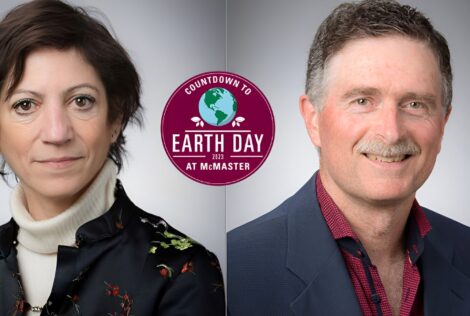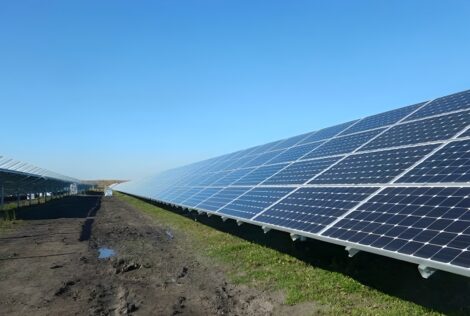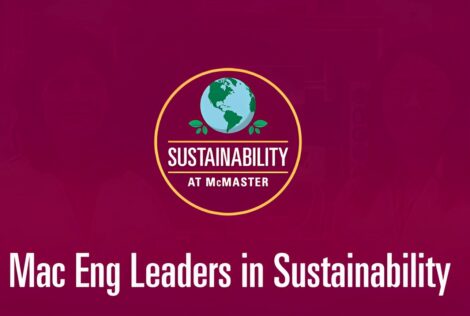
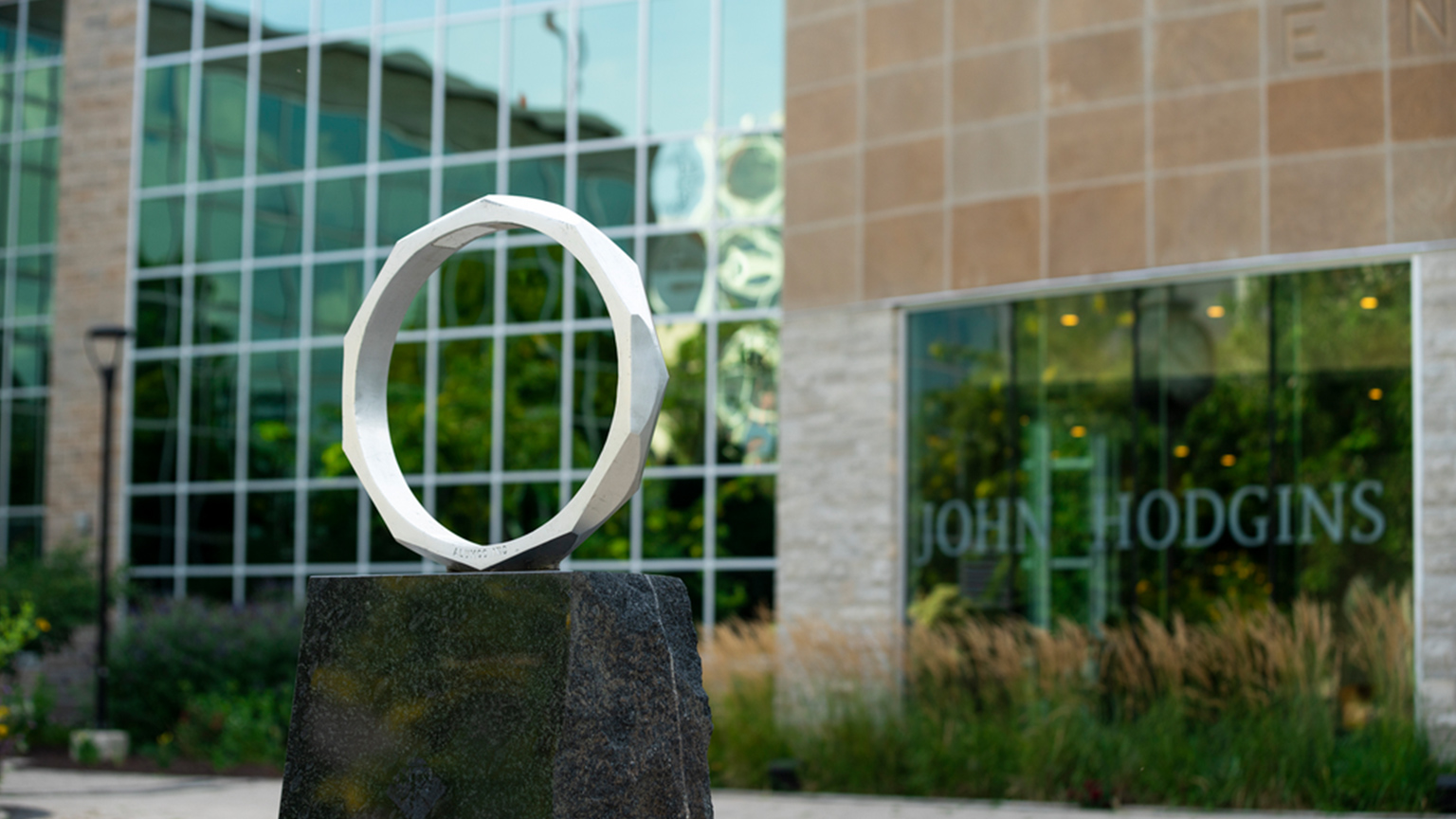
While the world turns its gaze to climate change today, McMaster Engineering continues to work to make our planet a more sustainable and healthier place. Here are five researchers who are tackling climate change or studying it as part of their work.
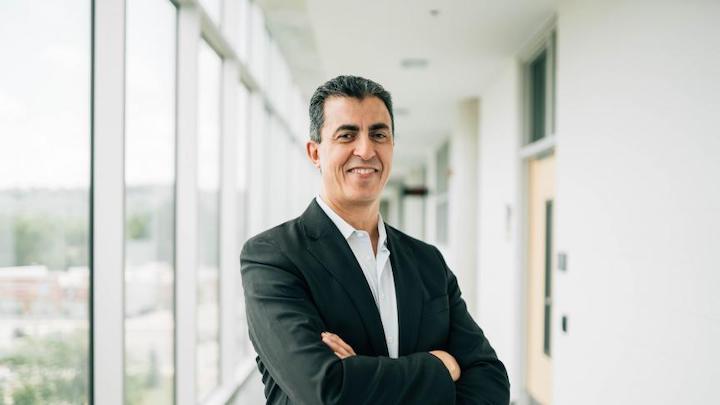
1. Lotfi Belkhir, W Booth School of Engineering Practice – How smartphones are heating up the planet
Belkhir’s research shows the impact of technology, especially smartphones, on carbon emissions.
Belkhir, along with Ahmed Elmeligi, a recent W Booth grad and co-founder of the startup, HiNT (Healthcare Innovation in NeuroTechnology), studied the carbon footprint of consumer devices such as smartphones, laptops, tablets, desktops as well as data centres and communication networks as early as 2005. Their findings were recently published in the 2018 Journal of Cleaner Production.
Not only did they discover that software is driving the consumption of ICT, they also found that ICT has a greater impact on emissions than we thought and most emissions come from production and operation.
“For every text message, for every phone call, every video you upload or download, there’s a data centre making this happen. Telecommunications networks and data centres consume a lot of energy to serve you and most data centres continue to be powered by electricity generated by fossil fuels. It’s the energy consumption we don’t see.”

2. Zoe Li, Civil Engineering – Measuring water and climate risk in an uncertain world
Managing water flow has always been an uncertain business, and never more so than in a world with a changing climate. Simulation models can offer predictions for water quantity and quality, but sometimes the most important thing to know is how much we don’t know.
Calculating and quantifying those unknowns is at the heart of assistant Civil Engineering professor Li’s work.
“My work provides decision support for climate adaption and for managing the risks associated with climate change,” says Li.

3. Sarah Dickson – Clean and safe access to drinking water for health and well-being.
Groundwater. Water treatment. Water chemistry. These are a handful of the blue bound book titles that make up an entire wall in Dickson’s office on campus.
Dickson is an associate professor in Civil Engineering. Her research focuses on groundwater in the context of water security from a local perspective, particularly in rural, remote, and marginalized communities.
“If you think about every aspect of our lives – energy, because we use a lot of energy to maintain our lifestyles, health and well-being, recreation, food security – if you think about all of those things, water is central to all of them.”
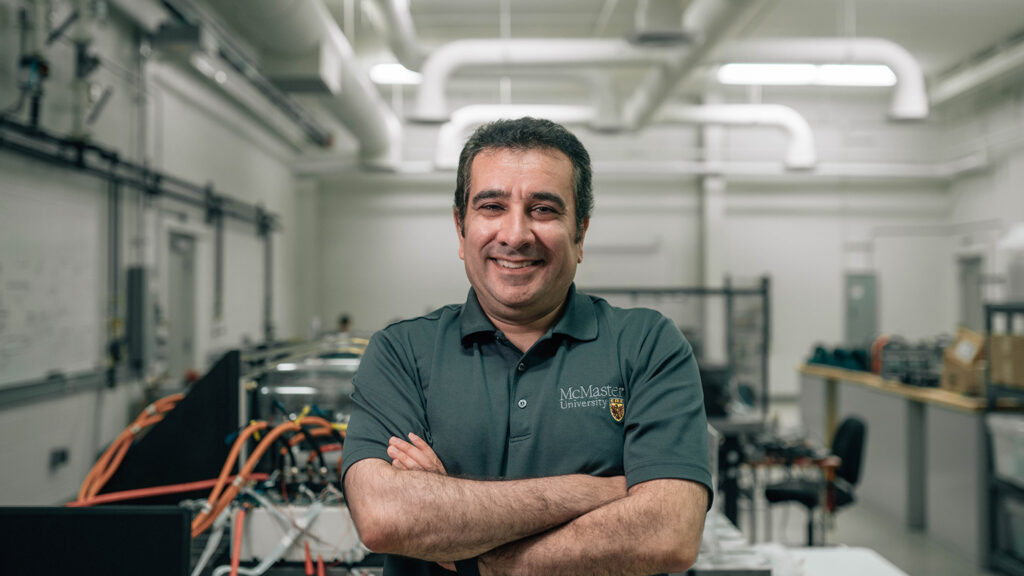
4. Ali Emadi, Electrical and Computer Engineering, Mechanical Engineering – Engineering and electrifying the next generation of cars
Emadi’s research focuses on pioneering sustainable energy-efficient solutions from advanced power electronic converters and electric motor drives to electric, hybrid electric and plug-in hybrid electric.
He says engineering the next generation of cars requires autonomy, capability, and most importantly, high efficiency with lower or zero emissions.
“Energy and sustainability are of critical importance to the planet,” says Emadi. “If we want to make the transportation system more sustainable, we need to electrify transportation. That way, we can improve sustainability, reduce emissions and come up with cleaner cars and cleaner environments.”
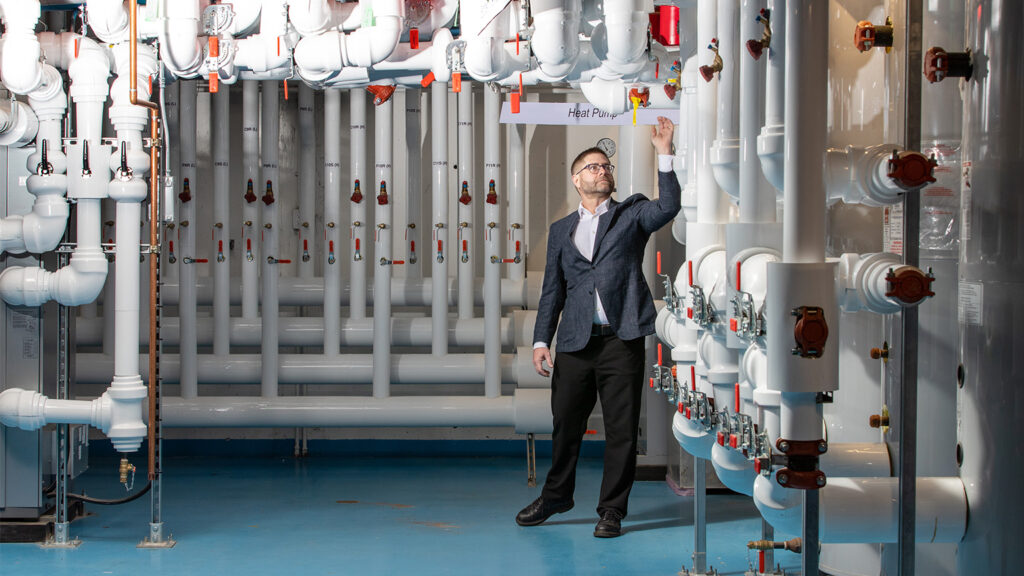
5. Jim Cotton, Mechanical Engineering – Creating a clean Ontario
Cotton’s vision is to build sustainable energy systems in communities across Ontario. His commitment to this vision began when he started working as a Mechanical Engineering professor at McMaster 11 years ago. Now, with the creation of a novel energy research cooperative, his work could help shape the city of the future.
“It is a grand heat transfer problem,” explains Cotton. “We waste more energy than we use in society. Why would we waste it when we can capture it?”

